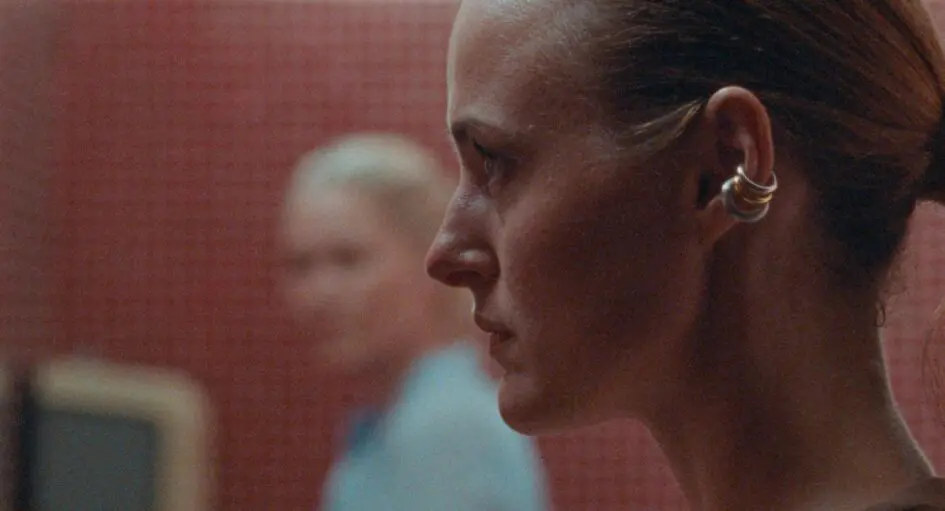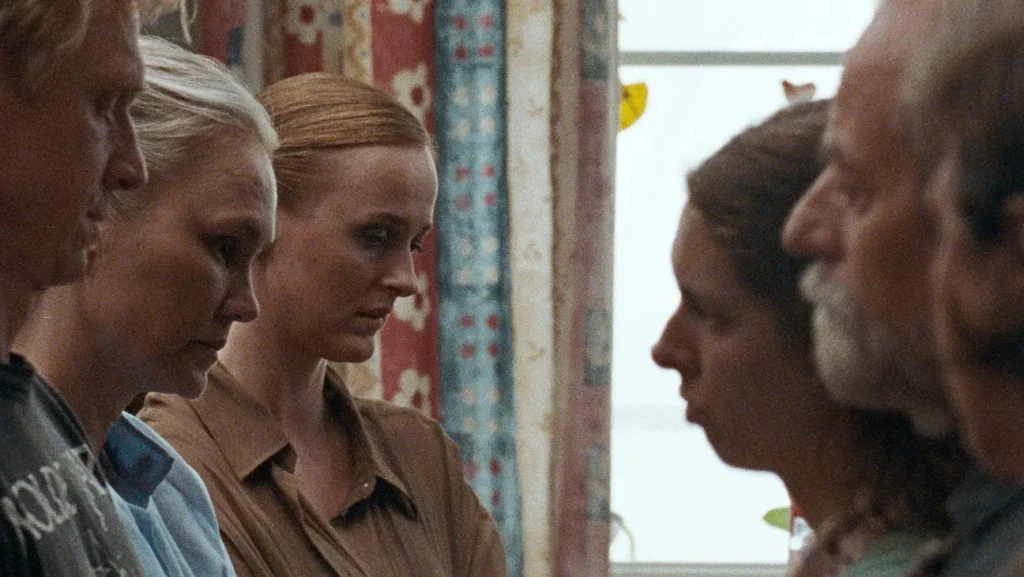Like many of my fellow parents, the thought of being called to the school because my kid did something bad terrifies me. It’s not just the embarrassment of walking into the principal’s office and feeling the weight of everyone’s judgment, but the deeper fear of what it might mean — did I fail as a parent? Did I miss something crucial in teaching them right from wrong?
My mind races to the worst scenarios: a fight, vandalism or bullying — something that could mark them in a way that’s hard to undo. I worry about how it would affect their future, their self-image and, honestly, how I would find the words to guide them through making it right? It’s not just the moment, itself, that scares me; it’s the uncertainty of how to rebuild trust and confidence in the aftermath.
This exact fear is at the heart of Armand, a Norwegian drama from debut writer-director Halfdan Ullmann Tøndel. The film stars Renate Reinsve as Elisabeth, a former celebrity-turned-mother to 6-year-old, Armand. When Elisabeth is summoned to her son’s school, she finds herself in a tense meeting with Sarah (Ellen Dorrit Petersen) and Anders (Endre Hellestveit), the parents of Armand’s friend, Jon.
As the school officials — Sunna (Thea Lambrechts Vaulen), Jarle (Øystein Røger) and Ajsa (Vera Veljovic) — begin to detail the shocking accusations against Armand, Elisabeth’s world unravels. Confronted with the gravity of the situation, she struggles to piece together the truth, while grappling with the implications for her son and herself.
Renate Reinsve is undoubtedly the standout of this film, delivering a performance that anchors Armand with remarkable depth and nuance. She begins as smug and self-assured, utterly convinced her child couldn’t possibly be in trouble — an arrogance that radiates even before the shocking accusation is revealed.
But as the tension mounts through more than an hour of relentless arguments, her tough exterior crumbles. Many actors can cry on demand, a skill honed through years of practice, but what sets Renate apart is her ability to sustain a hysterical laughing fit for over five minutes as her character unravels. It’s an extraordinary display of control and vulnerability, showcasing a rarely seen mastery of emotional range.
In that moment, Elisabeth transitions from a confident mother to a shattered woman, wracked with doubt — not only about her child, but also about the haunting events hinted at throughout the film. Renate crosses the delicate boundary between sanity and madness with seamless precision, delivering a performance that even seasoned actors would find hard to match.
Unfortunately, Reinsve’s stellar performance is the lone bright spot in Armand. The film is confined to a single location — the school — offering only fleeting references to the outside world. We never meet any characters beyond the parents and school officials, not even Armand or Jon, whose actions and relationship are central to the plot. This limited scope stifles the narrative, and as a result, the film begins to lose momentum after its first hour.
As the story progresses, it veers off-course, straying from the gripping premise of a child accused of a heinous act. Instead, it delves into tangents that feel disjointed and underdeveloped. Elisabeth’s emotional unraveling becomes overshadowed by scattered subplots, including the suicide of her husband, Sarah’s festering resentment, and Elisabeth’s mental breakdown. These threads are intriguing on their own but lack cohesion, leaving the film feeling unfocused.
Adding to the confusion is an inexplicable silent groping scene that comes out of nowhere, adding an uncomfortable and baffling layer to an already messy narrative. What begins as a tense psychological drama ultimately dissolves into a collection of unresolved ideas, leaving viewers frustrated and disconnected from the core story.
Armand earns a modest two out of five stars, with Renate Reinsve’s exceptional performance single-handedly saving it from a one-star rating. The film starts off strong, capturing the attention of viewers — especially parents with young children — with its tense and thought-provoking premise.
However, what begins as a compelling story soon falters under the weight of its own ambition. Instead of staying focused on its core concept, the narrative meanders and ultimately collapses, leaving its initial promise unfulfilled.
That said, as the debut feature from writer-director Halfdan Ullmann Tøndel, Armand offers glimpses of potential. The raw talent and foundational elements for great filmmaking are evident, even if the execution misses the mark. This project should serve as a valuable learning experience, providing Tøndel with the tools to refine his craft.
With some fine-tuning, he has the capacity to deliver something far more cohesive and impactful in the future.

